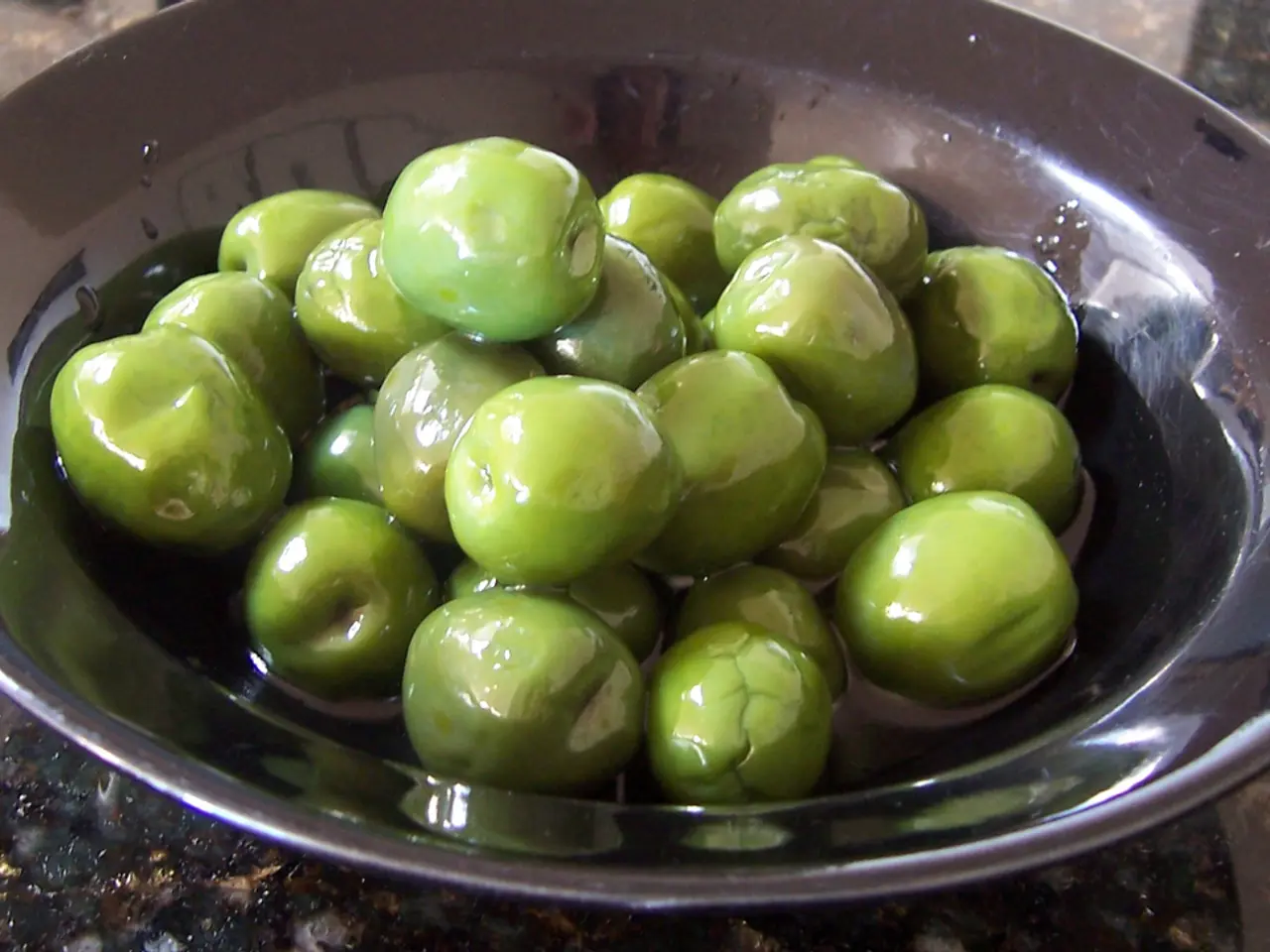Olive Oil: Health Advantages, Nutritional Data
In the world of cooking oils, olive oil stands out for its rich flavour, health benefits, and versatility. Derived from the fruit of the olive tree, this Mediterranean staple is more than just a cooking essential – it's a key player in maintaining gut health, lowering the risk of cardiovascular disease, and even preventing certain cognitive disorders.
A 2019 study revealed that the phenols in olive oil could boost intestinal immunity and improve gut health by altering the microbes in the gut. This is just one of the many benefits that olive oil offers.
Cooking with olive oil can enhance the nutrition of your recipes. Extra-virgin olive oil, in particular, undergoes the least processing and contains more antioxidants than other types. These antioxidants help prevent cellular damage caused by free radicals.
However, it's important to consider the effects of heating olive oil. Olive oil is rich in monounsaturated fats, which are relatively stable but can still oxidize when heated at high temperatures or for prolonged periods. This oxidation damages the oil’s chemical structure, increasing free fatty acids and potentially forming toxic compounds such as acrolein and furan.
While olive oil is fairly heat-stable, prolonged or very high heat exposure reduces its beneficial properties and increases the risk of toxic byproducts. It is recommended to use olive oil for moderate-heat cooking or raw to maintain its nutritional quality and minimize toxicity.
Contrary to some beliefs, heating olive oil does not produce trans fatty acids. Instead, it may form polymerized oils and aldehydes under harsh heating conditions. Repeatedly heating vegetable oils, including olive oil, can increase the production of aldehydes and other harmful compounds that may adversely affect health.
Despite these risks, a 2017 study suggested that frying food in olive oil may help maintain and even improve its nutritional value. Pan-frying produce such as tomatoes, onions, and garlic in olive oil improves the bioavailability of protective plant compounds, such as carotenoids and polyphenol antioxidants.
In the United States, U.S. Extra Virgin Olive Oil (EVOO) has an excellent flavour and odour, and a free fatty acid content of 0.8 g or less per 100g (0.8%). This makes it a popular choice for both cooking and health-conscious consumers.
Olive oil is a traditional crop of the Mediterranean region and has been used in cooking, cosmetics, medicine, soaps, and as a fuel for traditional lamps for centuries. Today, it continues to play a vital role in our diets and health, offering a flavourful and nutritious option for cooking and beyond.
When using olive oil, it's essential to be mindful of the heat and cooking time to preserve its nutritional benefits and minimise potential risks. By doing so, we can reap the rewards of this versatile and health-promoting oil.
- The antioxidants in extra-virgin olive oil, having undergone the least processing, help prevent cellular damage caused by free radicals, thereby contributing to health and wellness through nutrition.
- A 2019 study showed that the phenols in olive oil could boost intestinal immunity and improve gut health by altering the microbes in the gut, making it a key player in the science of nutrition and health.
- Despite being heat-stable to a certain extent, cooking with olive oil at high temperatures or for prolonged periods can reduce its beneficial properties and potentially form toxic compounds, emphasizing the importance of mindful cooking when using this nutritious oil.




